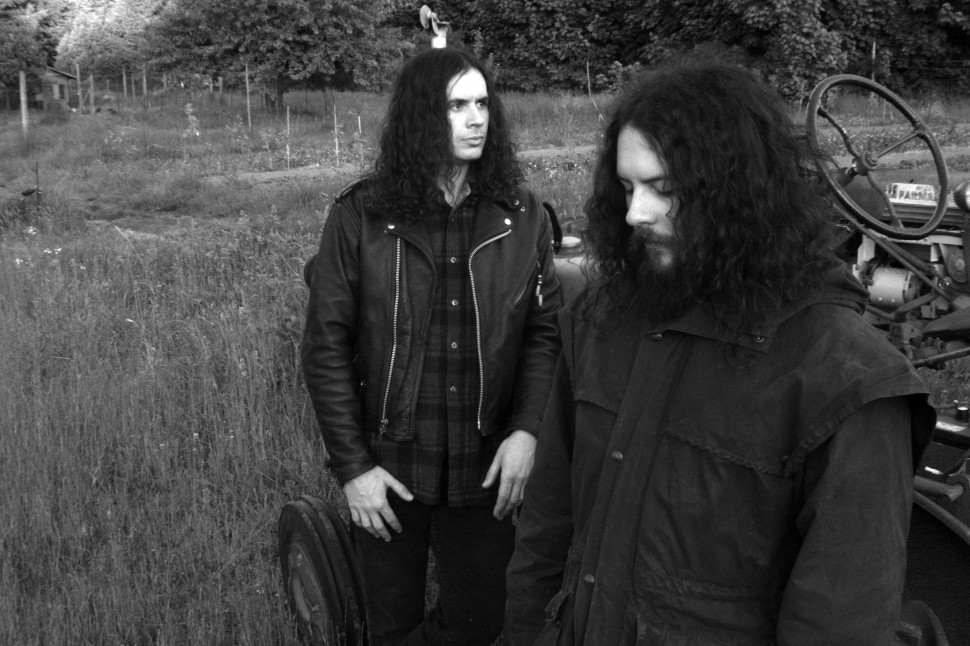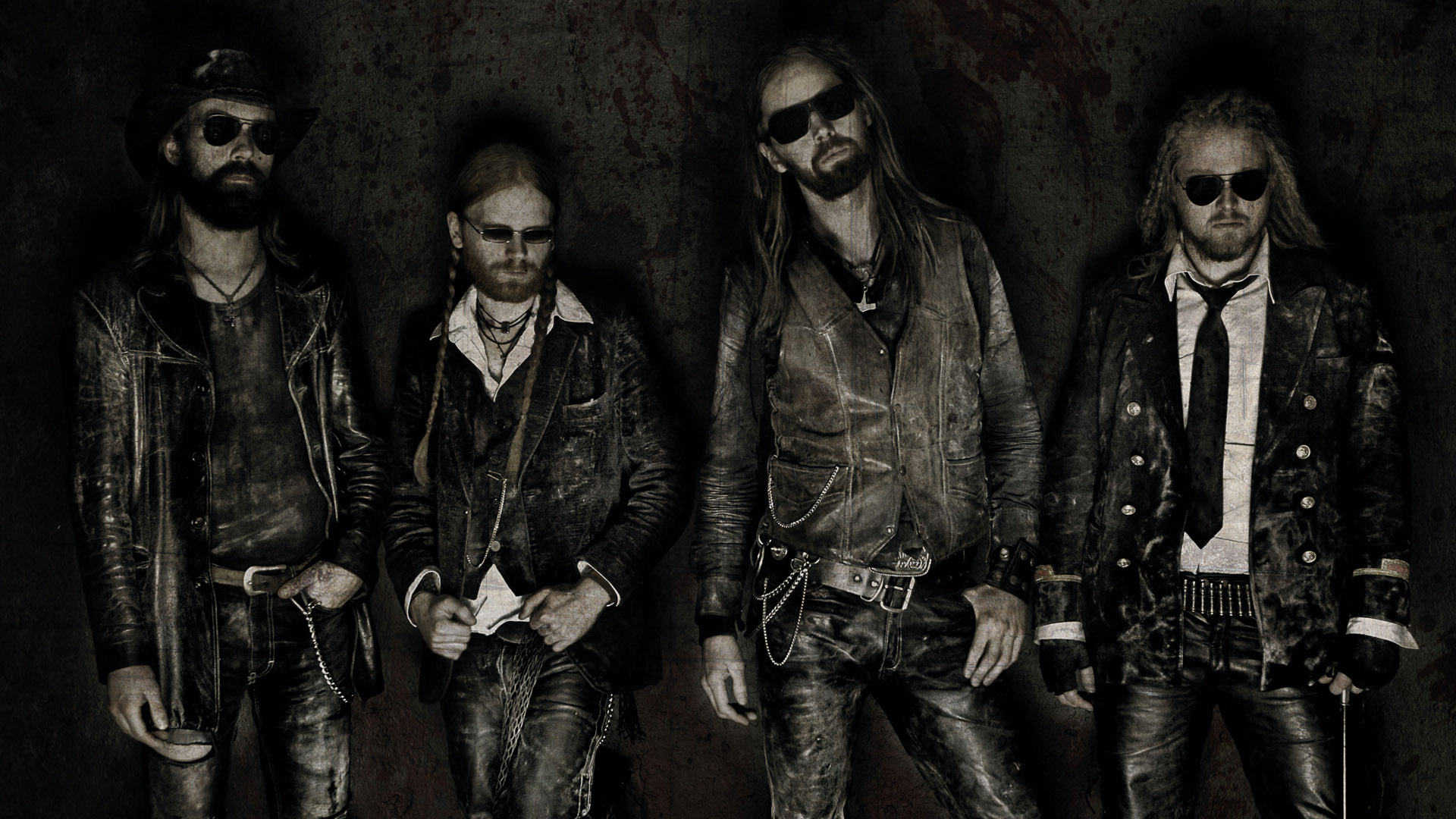As metalheads, many of us pride ourselves in our desensitization to ideas and imagery society deems 'objectionable'. Metal is a genre founded on eschewing what's palatable and 'safe' for the cryptic and extreme - from its early days the genre has attracted the scorn of the mainstream public, who view it as, among other things, offensive and excessive. But every once in a while an album comes along that manages to shock even some of the most hardened metal fans.
Obviously, then, such a record needs to be truly, indisputably, disturbing or deranged. An album frightening to listen to alone at night, or one that fills even the most stalwart Revenge fan with a sense of something terribly amiss. These horrifying descriptors somehow manage to perfectly encapsulate the menace of Lord Mantis' third outing
Death Mask - a record which may be 2014's most controversial to date. The album art, designed by Jef Whitehead (of Leviathan fame) attracted the shock of the metal press and the condemnation of social justice advocates earlier this year, who declared the art transphobic. Despite the band's laconic reply to these accusations with
"You're so far off the mark here.", the controversy set in and
Death Mask became one of the most hyped sludge albums of the year.
Lord Mantis are a Chicago-based blackened doom supergroup featuring members of Indian and Avichi, who both released excellent new records from the sludge and black metal aspects of Lord Mantis this past winter (seriously, if you haven't heard
From All Purity yet,
do it). With two previous records to their name, each more vomitous and torturous than the next, it would have been easy to assume
Death Mask would have been a continuation of 2012's
Pervertor, which, while a fantastically good album, would have made
Death Mask feel like a bit of a stagnation.
Instead, Lord Mantis have shifted their framework entirely, opting for, as previously mentioned, a far more vile, disturbing twist to most of their songs. While this seems difficult, considering how already disgusting their previous material was,
Death Mask has the band's trademark bile manifest in different ways, each more terrifying than the next. Vocalist Charlie Fell moves effortlessly between black metal howl and scathing hiss, and occasionally erupts into a bizarre, spine-tingling banshee scream. The title track slowly but surely, over the course of most of the song, rises in intensity, with every note gradually growing heavier as Fell howls over it, featuring a bizarre, hissed chant of
"ass, ass, ass, ass..." for a good thirty seconds, as well as a whispered
'amen' which, in the context of the song, are totally unsettling. 'Coil', in turn, features eerily modulated vocals that seem to melt out of the hypnotic guitars.
The ingenious thing about the vocals on this album is that, without the instrumentals, they would be almost laughable. The gurgling
'blood, rust, incinerate' on 'Possession Prayer' doesn't make any sense, but when scored against a churning, throbbing mess of bass, guitar, and screeching cymbals, or feedback later on in the song, it becomes far more ominous, and the pervasive bondage subtext makes the album that much more unnerving. Lord Mantis is very much one unit - with the instrumentals and vocal supporting each other through the suffocating twists and turns
Death Mask has to offer.
Even the largely acoustic break 'You Will Gag For the Fix' manages to be somewhat disturbing, using just enough melody for you to feel that something terrible is about to arrive when it does with 'Negative Birth', the record's most doom-y song by far.
Expecting a sludge band to be heavy is like expecting a puppy to be cute - and while Lord Mantis satisfy your need for sonic crushing, guitarists Charles Markuszewski (of Avichi fame) and Ken Sorceron (of Abigail Williams fame)'s songwriting on
Death Mask eschews the grooviness of previous outings for mid-range black metal riffs. The frequent black metal sections allow the band to raise the intensity ever so slightly, which in turn adds to the sense of fear and minds unhinged that
Death Mask has in such spades.
As soon as you start to see an end to the torture, 10-minute annihilator and album closer 'Three Crosses' comes in for a horrifyingly intimate finish. 'Three Crosses' has the band throwing absolutely everything they have into one crusty cauldron and stirring it around violently - feverish melodies and guitar solos wax and wane as the crushing backdrop relentlessly plows on. Fell's vocals appear sparingly, allowing the sickly mire to utterly encapsulate the listener.
Death Mask is not an easy pill to swallow, and every new listen reveals something new and terrifying. Alongside similarly excellent releases from Thou, Coffinworm, and Indian, Lord Mantis' new outing is sure prove the year's most utterly disturbing release. While at its most terrifying,
Death Mask doesn't approach the bizarre macabre of acts like Gnaw Their Tongues, it's nevertheless a profoundly bizarre, ghastly trip whose mashochistic adherents will return to time and time again.









